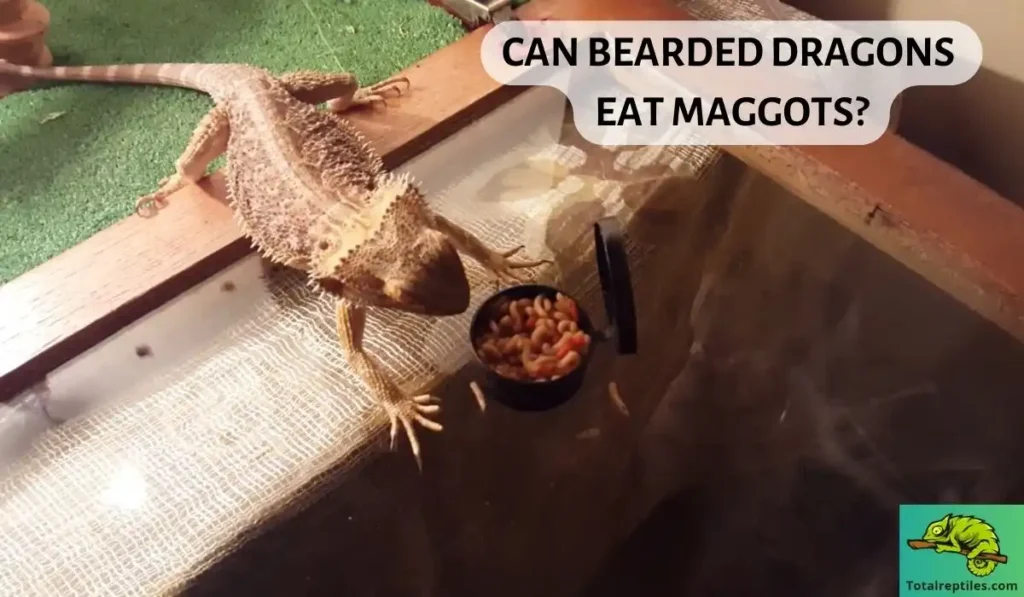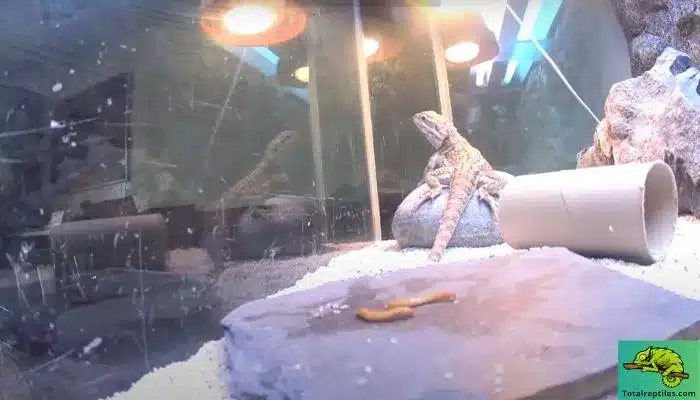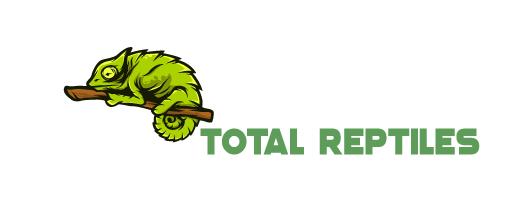It is not surprising that maggots are often accepted as food for some pets. But can bearded dragons eat maggots?
Your captive dragon can eat maggots safely to some extent, meaning experts do not recommend these grubs as a daily staple but as infrequent treats. It is because maggots may have adverse implications if the owner neglects certain aspects of the feeding guide.
So what are the risks and benefits of feeding maggots to your beardie? How often should you add this to their plate?
And most importantly, which ones are safe snacks?

Can Bearded Dragons Eat Maggots?
You should know that bearded dragons require a varied diet. As a result, an adult dragon must have about 20–10% insect matter in its regular diet composition.
This is where you can allow maggots to be part of the meal. Please do not make it a daily habit, as the reptile will require other insect options like roaches, mealworms, silkworms, locusts, etc.
Therefore, offer maggots as occasional treats to your adult beardie, as they do not qualify for top-tier nutritional value.
What Nutritional Benefits and Risks Do Maggots Have for Bearded Dragons?
In our extensive evaluation of the subject, we discovered that there are as many complications as benefits maggots may provide.
Advantages of Feeding Maggots to Bearded Dragons
- Maggots, or fly larvae, are loaded with protein that aids in boosting healthy growth.
- They have many amino acid structures essential for nutritional requirements.
- Maggots can help with proper digestion in a bearded dragon.
- It can also increase the amount of gut flora in the digestive system.
- They also support improving your reptile’s immune system.
- Maggots are easy to consume.
Downsides of Feeding Maggots to Bearded Dragons
- Regular maggot or larval consumption can increase bad bacteria mass.
- It can affect the dragon’s digestive system, triggering health problems.
- Some beardies may show signs of food withdrawal.
- Live maggots in your pet’s feces indicate impaction or unhealthy digestion.
Overall, continuous maggot feeding to your reptile is a bad idea. The habit can disrupt the small stomach while forcing the pet to slowly lose interest in proper eating.
As an outcome, your dragon may lose weight to a concerning level.
Types of Maggots to Feed Bearded Dragons
Maggots usually grow by eating feces and rotting flesh. Hence, your dragon can ingest any parasites, bacteria, or other harmful substances maggots consume.
Thus, it would be best if you did not scoop up any mound of maggots you see on your property. There are two good supplemental maggots you can provide:
- Housefly Maggots: These are best for a beardie suffering from weight loss because they have good protein and various amino acids. We recommend purchasing them from a reptile pet store instead of a fish bait shop.
- BSFM: Also known as black soldier fly maggots, they can help overcome the calcium and protein deficiency of your pet. They are ideal for young beardies.
How to Feed Maggots to Bearded Dragons?
A study of the proximate analysis of edible maggots ascertained that they contain high water and protein content.
Here is a brief look at the nutritional value of maggot meal based on three repeat analyses:
| Nutritive Value of Maggots | Mean ± S. D. (%) |
| Crude Protein | 48 ± 0.52 |
| Crude Fibre | 5.89 ± 0.05 |
| Ash Content | 10.03 ± 0.44 |
| Moisture Content | 86.0 ± 0.47 |
Additionally, the energy content obtained in kcal/kg is 3755 ± 190, which explains why maggots are not a staple meal but a moderating snack.
On the other hand, the nutritional profile may vary depending on how they are gut loaded and with what food items.
With these points in mind, try to maintain the following steps:
- Offer only gut-loaded maggots.
- Do not give wild maggots or maggots/larvae found outdoors.
- A large scoop of these in the enclosure can stress the dragon.
- Offer one or two small maggots at a time to prevent upsetting the stomach.
- Place the maggots in a bowl inside the enclosure. The beardie can easily eat them from there.
- Do not feed maggots more than once a week.
How Many Maggots Should a Bearded Dragon Eat?
Maggots are not suitable for regular inclusion in the diet. So, it would be best if you offered them occasional treats in a rough number of 5 or 8 per week.

Feeding maggots more than once a week can disrupt the gut flora, leading to digestive problems. Even if your reptile seems to enjoy the grubs, limit the quantity to avoid obesity.
Can Bearded Dragons Eat Black-Soldier Fly Larvae?
While maggots can be from several species, the questioned larvae are from a single species. But can bearded dragons eat soldier fly larvae?
Yes, black soldier flies, or BSF larvae (Hermetia illucens), are filled with protein and calcium. It is great for dragons suffering from malnourishment.
Nevertheless, make sure that the BSFL has been raised on a healthy plant-based diet (gut-loaded) to deliver appropriate nutrients to your pet.
These larvae have a high-fat content, so monitor your beardie for any signs of obesity.
On the other hand, juveniles grow faster at this life stage and do not remain overweight for prolonged periods. It is the adult dragons, who eat less insect matter, and pose a risk from overfeeding.
How Many Black-Soldier Fly Larvae to Feed Bearded Dragon?
However, offer these grubs as treats and in moderation based on the beardie’s age.
For instance, you can give 10-15 BSFL to adult dragons (9+ months) every other day, whereas juveniles (3–9 months) will require 20–40 twice a day. Baby dragons can eat around 20 small BSFL 2 to 3 times per day.
This is merely a rough idea; the feeding frequency can vary for each bearded dragon.
Conclusion
So, can bearded dragons eat maggots? Although most humans find them gross to handle, they can be nutritionally beneficial to reptile pets.
If you notice your dragon is underweight, you can add maggots as part of their diet. However, maggots should only be a tiny percentage of insect matter.
The palate should have other options, like crickets, waxworms, etc., besides plant matter. Weigh your beardie regularly to ensure the best way to provide its meal.
References & Resources
- Raiti, P.’ Husbandry, Diseases, and Veterinary Care of the Bearded Dragon (Pogona Vitticeps)’, Journal of Herpetological Medicine and Surgery (2012).
- Odesanya, B. O., et al., “Comparative evaluation of nutritive value of maggots.” Int. J. Sci. Eng. Res 2.11 (2011): 1-5.

